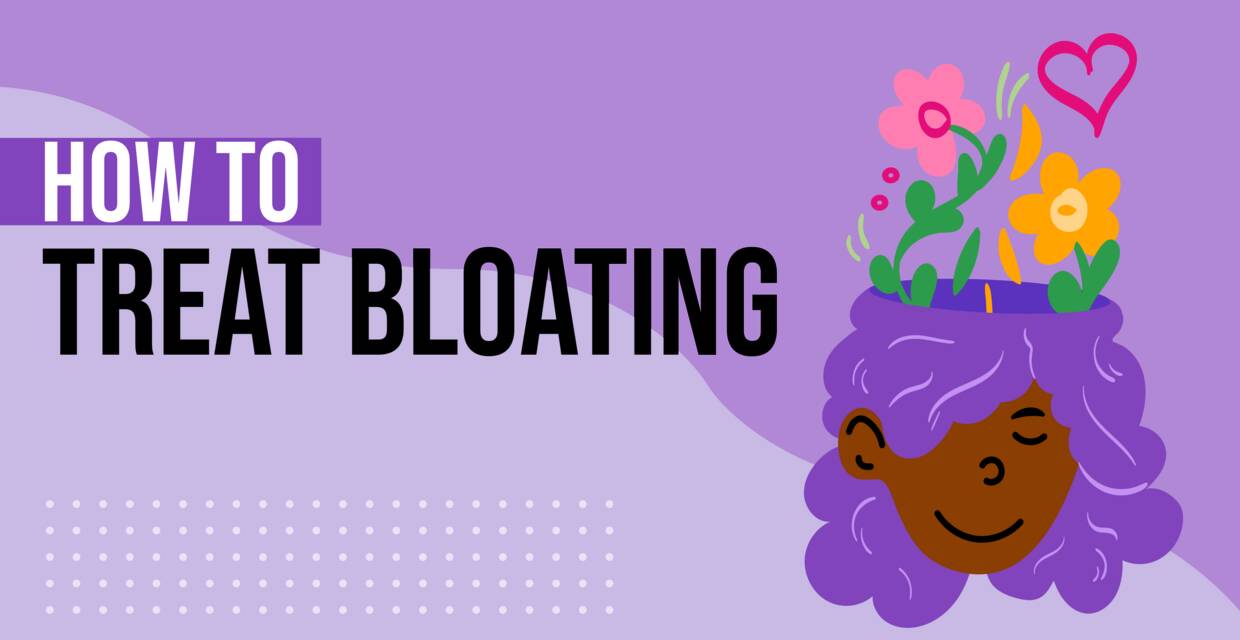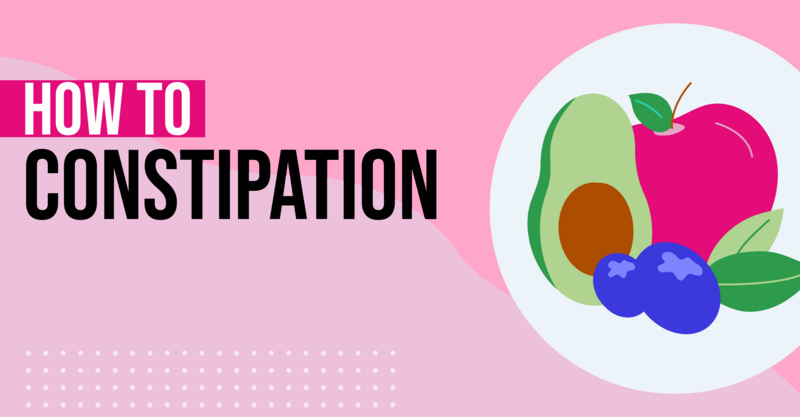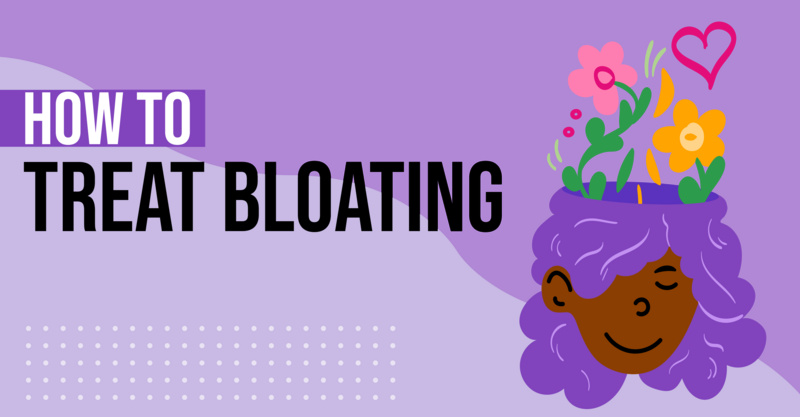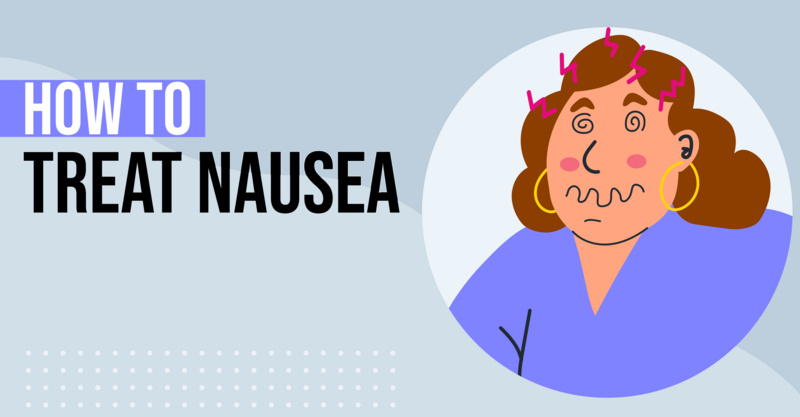Key Points
- The article provides various immediate remedies for gas and bloating such as warmth application, herbal teas, abdominal massages, and certain ingestible solutions.
- It also recommends lifestyle changes like eating slowly, avoiding certain habits and foods, and maintaining a balanced diet.
- Over-the-counter products and activated charcoal can be used, but the latter should be under a doctor's supervision.
- While gas and bloating are common, they can be signs of serious conditions, so it's crucial to seek medical advice if experiencing unusual symptoms.
- It highlights the potential benefits of probiotics and dietary supplements for managing gas and bloating.
Gas and bloating are common problems that can be uncomfortable and even frustrating. Whether it's caused by certain foods, digestive issues, or other factors, there are things you can do at home to help alleviate the discomfort.
From natural remedies to over-the-counter options, below you’ll find the most effective ways to get rid of gas pains and bloating at home.
10 Ways to Reduce Gas and Bloating Quickly
1. Apply Warmth to Your Abdomen
Using a warm compress or taking a warm bath can help relax the muscles in your digestive tract and relieve gas, according to VeryWell Health. To make a warm compress, soak a towel in warm water and wring it out, then place the warm towel on your abdomen and relax for 10-15 minutes.
2. Drink Herbal Teas (Like Peppermint, Ginger, or Chamomile)
Some herbal teas like peppermint, ginger, and chamomile can help relax the muscles in your digestive tract and reduce inflammation, according to Healthline. You can find herbal teas at most grocery stores. Follow the instructions for steeping found on the package, as it may vary depending on the type of tea you purchase.
3. Go for a Walk
Regular exercise can help regulate your digestive system and reduce gas, according to Healthline. Additionally, they note that going for a walk can help gas move through your digestive system more quickly, so it can also be a great remedy for relieving gas right away.
4. Massage Your Abdomen
Massage can help stimulate your digestive system—thus helping your gas to move down and out of your body. Healthline notes that the “I LOV U” technique may be helpful for gas massage. This consists of making circular movements in the shape of the letters I, L, O, and U over your abdomen.
5. Drink a Mixture of Baking Soda and Water
Baking soda can help neutralize stomach acid and relieve gas, according to VeryWell Health. They recommend that you mix 1/2 teaspoon of baking soda in 1 cup of warm water and drink it slowly. They also note that you should be careful not to use this as a long-term solution for gas, as it can cause potentially dangerous side effects like dehydration or stomach injury.
6. Fennel Seeds
Fennel seeds contain anethole, which can help relax the muscles in your digestive tract and reduce inflammation, according to Healthline. They note that you can chew on a teaspoon of seeds after meals or steep 1 teaspoon of seeds in 1 cup of hot water for 5-10 minutes to make fennel tea.
7. Apple cider vinegar
Healthline notes that there is some evidence that suggests apple cider vinegar may help alleviate gas. They recommend that you dissolve 1 tablespoon of apple cider vinegar in a glass of water if you want to try this home remedy.
8. Yoga
Yoga is another great way to stay active, which is great for your overall digestive health, but Healthline notes that you can also use certain yoga poses to help alleviate gas. They recommend trying this pose:
- Lay on your back with your legs extended straight up (feet together)
- Bend your knees and put your arms around them
- Pull your knees to your chest
- Lift up your head to meet your knees
- Hold this pose for 20 seconds or as long as you can comfortably
9. Try Over-The-Counter Products
Over-the-counter products like simethicone or antacids can be very effective when it comes to treating gas and bloating. Simethicone can help break up gas bubbles in your digestive tract, while antacids can help neutralize stomach acid, according to VeryWell Health.
10. Activated Charcoal (Under a Doctor’s Supervision)
Activated charcoal is a controversial remedy according to VeryWell Health, because it can cause side effects like constipation, diarrhea, nausea, and vomiting. They recommend that you use activated charcoal under the guidance of a doctor.
10 Ways to Reduce Bloating With Lifestyle Changes
If you experience gas and bloating frequently, making lifestyle changes may help you manage it in the long term. Here are some tips:
1. Eat Slowly
Eating too fast can cause you to swallow air or overeat—both of these can lead to gas and bloating, according to Medical News Today. By eating slower you can avoid this and avoid overeating by paying more attention to your fullness cues.
2. Avoid Chewing Gum and Straws
Swallowing air is a common cause of gas buildup. Chewing gum and using straws can both cause you to swallow air unintentionally. If you struggle with gas or bloating, Medical News Today notes that you should avoid these things.
3. Quit Smoking
Smoking has many negative impacts on your health—causing digestive issues including gas and bloating is just one negative side effect of smoking, according to Healthline.
4. Avoid Non-Carbonated Drinks
Carbonated drinks like soda pop, beer, and sparkling water can create gas bubbles that build up and make you feel bloated. Healthline notes that if you find yourself dealing with gas and bloating regularly, you should avoid these beverages.
5. Watch Out for Gassy Foods
There are some foods that can cause air to build up during digestion, according to the Mayo Clinic. So if you are prone to gas and bloating issues, you may want to avoid these certain foods. Keeping a food journal can help you identify if you are eating gassy foods. The Mayo Clinic notes that some common “gassy foods” include:
- Beans and lentils
- Some vegetables like cabbage, broccoli, cauliflower, and Brussels sprouts
- Bran
- Dairy products
- Fructose (a common sweetener in soft drinks and other processed treats)
- Sorbitol (a sugar substitute used in sugar-free candies or gum)
6. Address Possible Digestive Issues
If gas and bloating are common problems for you, you may have an undiagnosed digestive problem that warrants a visit to the doctor. Obviously, any pain associated with gas and bloating requires a visit to see your doctor. The Mayo Clinic notes that the following conditions can cause ongoing issues with intestinal gas:
- Celiac disease
- Irritable bowel syndrome (IBS)
- Constipation
- Eating disorders
- Gastroesophageal reflux disease (GERD)
- Gastroparesis (a condition in which the muscles of the stomach wall don't function properly)
- Intestinal obstructions
- Colon and ovarian cancers
7. Try Probiotics
Probiotics are live bacteria that can help improve the balance of bacteria in your gut, according to the Mayo Clinic. You can find probiotics in some foods such as yogurt, kefir, and sauerkraut, or you can take them in supplement form. Probiotic supplements can be found at most retail drugstores.
8. Pay Attention to Dietary Fiber
Eating foods high in dietary fiber can help regulate your digestive system and prevent gas from building up in your intestines. The Mayo Clinic recommends that women aim for at least 21-25 grams of fiber per day, and men aim for 35-38 grams per day. Good sources of fiber include fruits, vegetables, whole grains, and legumes.
9. Regulate Your Bowel Habits
Eating at regular intervals can help regulate your digestive system and prevent gas, according to Healthline. It is also important to ensure that you are having regular bowel movements. What is considered “regular” varies from person to person, according to the Cleveland Clinic. They note that in general, you should have a bowel movement anywhere from 3 times a week to 3 times a day. They also note that you should spend no more than 5 minutes having a bowel movement—any longer than that could mean you are dealing with constipation.
10. Consider Dietary Supplements
If lifestyle changes aren't enough to manage your gas, you may consider taking dietary supplements such as digestive enzymes, activated charcoal, or fiber supplements to regulate your bowel habits, according to Medical News Today. They note that you should always consult with your doctor or a registered dietitian before starting any supplements.
When to See a Doctor For Gas and Bloating
Gas is a common issue that can usually be treated at home with simple remedies, according to Healthline. However, in some cases, gas can be a symptom of a more serious underlying condition that requires medical attention. Here are some symptoms that may warrant a visit to your doctor, according to Healthline:
- Any pain
- Unexplained weight loss
- Bowel movement frequency changes
- Blood in your stool
- Constipation
- Diarrhea
- Nausea or vomiting
- Heartburn
- Loss of appetite
Going to urgent care can be a great way to see a doctor quickly and get cost-effective care. Most urgent care clinics offer extended hours and online check-in which make it more convenient than waiting for an appointment with a primary care provider.
Key Takeaways for Managing Gas and Bloating at Home
Gas and bloating are common conditions that can usually be managed at home. There are several things you can do to find immediate relief, such as using warmth, herbal teas, or massage to relax your digestive system and yoga poses or walking to help gas move through your system. There are also over-the-counter medications that are available for both immediate relief and long-term help.
Some things you can do to avoid bloating in the future include:
- Eating slower
- Avoiding things that can cause you to swallow air, like chewing gum, straws, carbonated drinks, and smoking
- Avoiding certain foods that can make you gassy
- Address any possible digestive issues
- Get an appropriate amount of dietary fiber
Remember, even though gas and bloating are common, it can also be a sign of something more serious. You should see a doctor if you experience any unusual symptoms: unexplained weight loss, changes in your bowel habits, blood in your stool, nausea, vomiting, or loss of appetite.
Frequently asked questions
What are some immediate remedies for gas and bloating?
Some immediate remedies include applying warmth to the abdomen, drinking herbal teas, walking, massaging the abdomen, and consuming mixtures like baking soda and water or apple cider vinegar.
What lifestyle changes can help manage gas and bloating?
Eating slowly, avoiding gum and straws, quitting smoking, avoiding carbonated drinks and gassy foods, and maintaining a balanced dietary fiber intake can all help manage gas and bloating.
Can over-the-counter products help with gas and bloating?
Yes, over-the-counter products can help with gas and bloating, but always consult a doctor before starting any new medication.
Can activated charcoal be used for gas and bloating?
Yes, activated charcoal can be used for gas and bloating, but it should be used under a doctor's supervision.
Can gas and bloating be signs of serious conditions?
Yes, while gas and bloating are common, they can also be symptoms of serious conditions. It's important to consult a doctor if experiencing unusual symptoms.
What unusual symptoms should prompt me to see a doctor?
Unusual symptoms that should prompt a doctor's visit include unexplained weight loss, changes in bowel habits, blood in the stool, nausea, vomiting, or loss of appetite.
Can probiotics and dietary supplements help with gas and bloating?
Yes, probiotics and dietary supplements can help manage gas and bloating, but it's best to consult a doctor before starting any new supplement regimen.
Should I address digestive issues to manage gas and bloating?
Yes, addressing underlying digestive issues can help manage gas and bloating. It's best to consult a doctor for an appropriate treatment plan.
Solv has strict sourcing guidelines and relies on peer-reviewed studies, academic research institutions, and medical associations. We avoid using tertiary references.


 LinkedIn
LinkedIn










